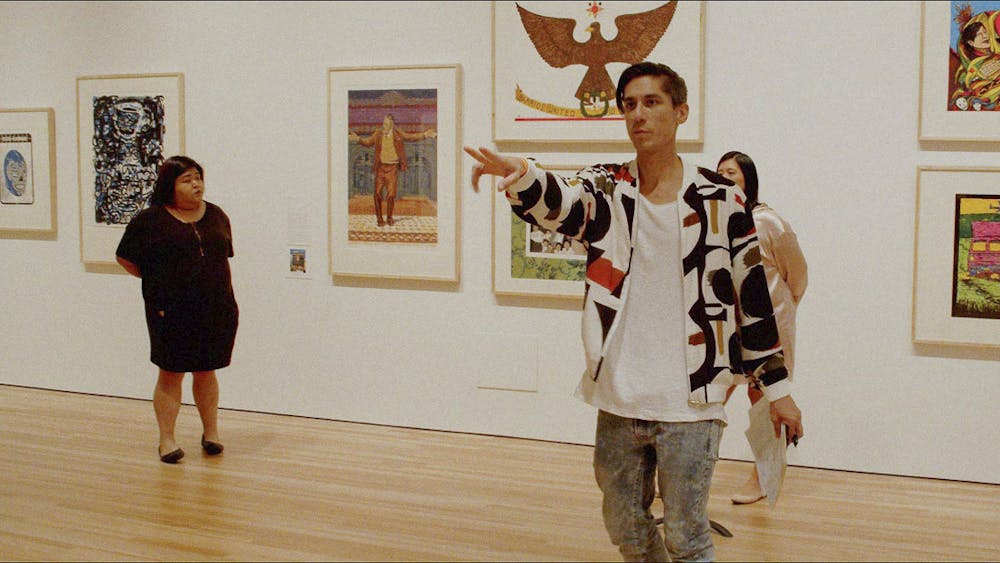Later this month, the Columbia Museum of Art will play host to "The Great Hurricane," a new immersive opera composed by Nathan Felix specifically for the museum and the city of Columbia.
According to Felix, the performance will demonstrate the impact natural disasters have on communities while serving as an introduction to a unique form of opera.
Conducted by USC graduate assistant David Gordon, the show will feature four singers performing around the audience as they move through multiple galleries in the museum and adapting based on the crowd.
The cast features sopranos Anna Flynn, Erin Ridge and Payton Parker as well as tenor James Allen as four fictional friends from Columbia in 2015 trying to escape the historic flooding from Hurricane Joaquin.
Sisters Persephanie and Xandy, played by Flynn and Parker, lost their parents in Hurricane Hugo in 1989 and fear a similar outcome for themselves. They seek shelter and try to escape South Carolina with their friend Salvatore and his fiancee Cordelia, played by Allen and Ridge, respectively.
Salvatore and Cordelia, who is pregnant, worry about the future of their unborn child and that their community will not exist by the time they come back.
Felix said that for six acts, the performance delves deeper into the lives and future of these friends and how the storm serves as a metaphor for social division.
"The minutiae of it is more of social-cultural topics about how water and mother nature and floods can sort of divide a community or nourish a community," Felix said.
The inspiration for the opera was derived from Felix's encounter with Hurricane Ian, the devastating storm that made landfall in Florida and eventually made its way to Columbia. Originally from Texas, this was his first introduction to hurricanes.
"I realized the impact it can have on communities and how it could shift cultures," Felix said. "That was sort of the impetus of why I wanted to talk about the greater subject matter in hurricanes."
It's important for the audience to experience the gravity of the situation portrayed by the performance, according to Gordon, because of how it represents the real threat of climate change.
"It seems to be super relevant right now. The hurricanes and the tornadoes that have ripped through the South. I want them to relate what they're seeing to the current events that are happening and almost to tie it into climate change and this impending warning for the future," Gordon said.
According to Felix, the performance is designed to introduce audiences to opera, and Allen, who is also a first-year doctoral candidate in vocal performance at USC, agrees that "The Great Hurricane" serves as an exposition to opera for those who have never experienced the genre before.
“It's a great first opera because it's immersive. You are walking around exhibits and walking around the Columbia Museum of Art, and so you're able to look at the exhibits while we're singing and, hopefully, that will encourage them to go to different opera productions around town,” Allen said.
Allen said that his education from USC's School of Music has better prepared him for his role as Salvatore.
“They really prepare us to do these full-length opera roles that are sometimes upwards of three hours long, multiple nights in a row, which is a very big feat,” Allen said. “It’s a very big game of stamina and they definitely coach us and train us in a way that we are able to do that multiple times a week.”
Since the performance is constantly moving, differing from traditional operas, Gordon conducts in a discreet, simple manner to allow the audience to focus all its attention on the singers.
“I’m trying to be a servant for the singers, for the instrumentalists and to make their job easier. I’m not really trying to be there to provide anything unnecessary,” Gordon said. “It would be a compliment for me for people to almost forget that I’m even involved."
The opera is on Thursday, April 20 at 6:30 p.m. and is free to attend.

